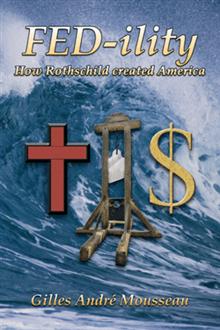The Wildcat Banking years, as they were known, were officially a period of State regulated banking from 1837 to 1865, a misnomer if ever there was one, for they definitely were of the unregulated or untamed variety. It was the dawn of railroads, steel, black gold, and banking, and in order to maintain control over the monetary system and the thousands of banks that were springing out of the ground, HR sent for his Jewish friends in Germany. Eventually, the Warburgs, the Schiffs, the Lehmans, the Oppenheimers, the Kuhns, the Loebs, and others, started arriving from Frankfurt in order to channel this tsunami of economic activity. Financing the Morgans, the Carnegies, and the Rockefellers, and all the other American robber barons was a logical thing for HR (House of Rothschild) to do. The age of the “speculative bubble” economy had arrived.
The modus operandi was simple. Ambitious and shady characters of all kinds would open banks, claim land, build railroads, mine for gold, or drill for oil, and do the basic dirty work. Then, in order to encourage the frenzied development, one of HR’s German friends would open a well-heeled bank and lend money as though it grew on trees. The easy credit got rid of the competition and fed the greed of honorable people, as well as thieves, thugs, and killers who were all bent on getting their hands on as much wealth as possible. Leverage became the name of the game and speculation went to the moon. When HR deemed the time right, the tap was turned off, the bubble burst, the defaults followed, and HR’s banker friends and the robber barons picked everything up for a song. This time-honored formula was repeated in all the new states and, although adapted to the times, is still in use worldwide to this day. By the end of the nineteenth century, Rockefeller, Carnegie, Morgan, Vanderbilt and others ran industrial America generally while the Lehmans, the Kuhns, the Loebs, etc. kept a stranglehold on the world of finance. HR’s American coast-to-coast market economy dream had become a reality, and now it was on to Europe and China.
